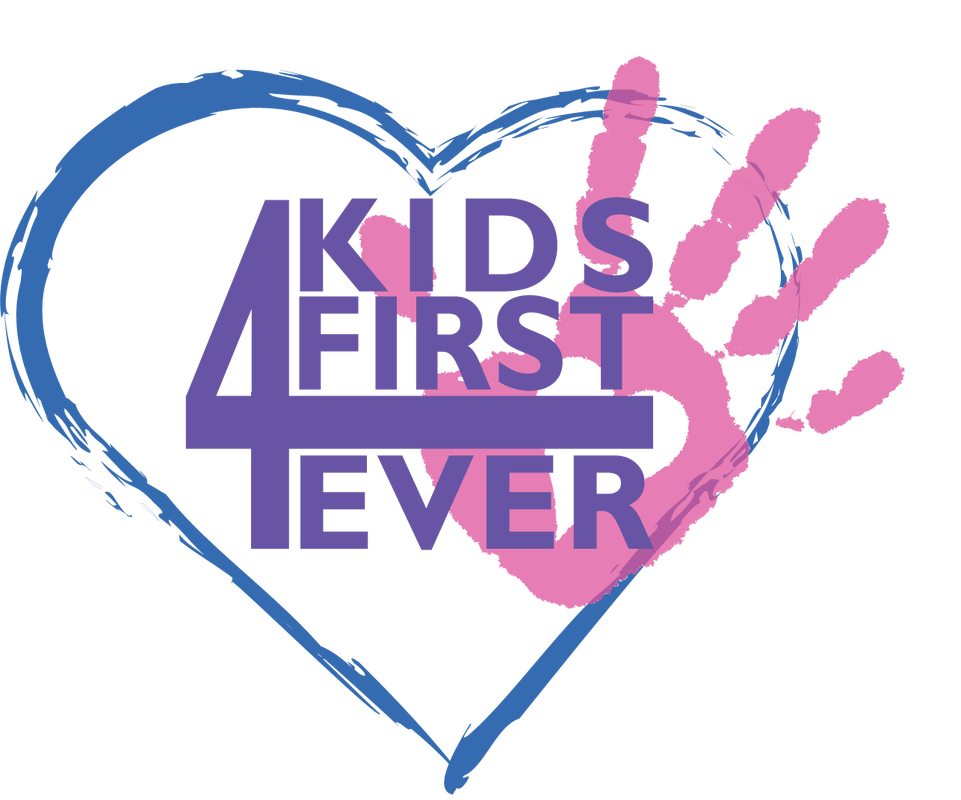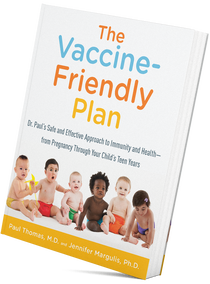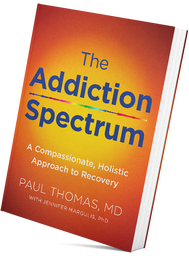TextDr. Paul 0:18
Good morning, CH D. Welcome to paediatric perspectives. This is where we are looking at children's health challenges with a different perspective. One that includes critical thinking, and one that's not afraid to give you the honest truth. We have very important special guests because of that requirement. And today, we're going to cover the defender, I want to highlight this online, most relevant online journal, I think in the world covering CHD, COVID, Big Pharma tech, chemical, energy, food and legal aspects. Of course, my segment is focusing on pediatrics. We're in the medical world. And my guest today is Bob Sears. Welcome, Bob. Bob Sears M.D. 1:00 Hey, thanks, Paul. Thanks for having me on. Dr. Paul 1:03 It's so great to have you. For the audience. I just want you to know I'm asked all the time, where do I go for good information? And especially regarding vaccines, it's so difficult where to know where to go? Well, one place I always went to, from the time this book came on, is Dr. Bob Sears book, The vaccine book, which you just edited in 2022. To include COVID. Bob Sears M.D. 1:27 Yeah, it's it's been my, my life's passion to inform people, Paul and give them an objective look at vaccines, so they can make an educated decision. And as you know, vaccine, vaccines are always changing, the diseases are changing. They come out with new vaccines. Yeah. So I've been very happy that I've been able to update my book along the way. And you know, and including adding a whole entire new I think 25 Page chapter just on the code COVID vaccine alone, so that people up to date information. Thank Dr. Paul 1:59 you for doing that. My other chief resources, actually the defender, and you might go what? Well, it's searchable. So I get questions all the time. I'll take an example HPV, so human papilloma virus that's been supposedly linked with cervical cancer, but the vaccine is one that's fairly problematic. And so patients ask or before I'm retired, now, I don't diagnose or give medical advice, but information, where do you get it? You just go into the defender, and you click on HPV vaccine, and boom, you've got a wealth of resources with hyperlinks. It's incredible. I mean, you'll learn that the HPV vaccine has no effect in reducing cancer rates. And that vaccination is actually associated with an increased cancer rate. What? That's crazy. What do you think about that, Bob, just to hit you off the top with something kind of obscure? Bob Sears M.D. 2:53 Yeah, you know, HPV vaccine is super interesting, Paul, what I find fascinating is is the one of the obstetricians who helped research and did early development on the HPV vaccine and was involved in testing it and seeing how well it worked on her patients. And because because that's the kind of doctor that would deal with HPV issues is is an OBGYN. And even she came out online with with videos explaining that this vaccine was not researched properly in a way that really demonstrated whether or not it prevented cancer. And that's the whole purpose of the vaccine. And even she admitted that, that we did not achieve that in our research before the FDA approved this vaccine. And the other thing that that I find interesting about this particular disease and vaccine is this disease is completely preventable, Paul, and a lot of times you think maybe a vaccine is going to be really important. If the whole population is completely at its at that diseases, mercy, say we have no way to prevent a certain infection. And and we want a vaccine to help prevent, you know, protect us from it. That's that's worthy of consideration. But when you have a disease that is 100%, preventable, through making smart new life decisions, then that vaccine in my book, literally becomes less important. In fact, you know, young adults out there, you have to practice to safe sexual practices, you know, you know, your whole adult, you know, young adult life, and you have to prevent, you know, HIV infection, other sexually transmitted infections, HPV, hepatitis B, got to prevent all kinds of things. So if you're making smart decisions of preventing all of those infections, then you're also going to be preventing HPV. So if you're going to make smart decisions, you wouldn't need this vaccine. So that's another thing I tell the teenagers in my practice when they're asking me questions about this is you're not at this diseases mercy like you are maybe some other infections, you can make smart choices and this particular vaccine, Paul has a not a very good looking side effect profile. Dr. Paul 5:19 I was gonna bring that up Bob Sears M.D. 5:21 just can be devastating to poor young teenagers, especially teenage women, Paul, and so we have a risk profile that doesn't look good for completely preventable disease. To me. Parents need to consider that before they give their teenagers this vaccine. Dr. Paul 5:38 Yep, I couldn't agree more. I never carried that vaccine in my office because I just saw that it was highly dangerous and so ineffective. And then I had two teenagers just what you're describing, they were both girls, top students and athletes who came into my office with difficulty walking and neurologic stuff, weird stuff. They were really struggling brain fog as well. And after months and months, they've seen every specialist in town. I finally just baffled I asked one of them. You didn't get any vaccines, did you? Because there was nothing on my record about vaccines. And she goes, Oh, yeah, I got the vaccine HPV at school, the mom's mouth drops open you what she didn't know. And this happened twice. And and just devastating their health, it was ruined. Which, you know, that's just another whole story, which actually, let's segue into that. Because the defender had an article recently about parents were taking on the Philadelphia health officials to overturn a law that was allowing kids to get vaccines without parent consent, which is exactly what happened to these two girls in my practice. And I don't know, have you? Do you have similar laws in California? And what do you think about kids as young as 11 being able to make health decisions without their parents knowledge? Bob Sears M.D. 7:00 Yeah, Paul, we do have a law in California that allows children to seek medical care. I think it's 12 and older. For any issue regarding sexuality or sexually transmitted infections. So HPV vaccine, any any type of you know, OBGYN care, teenagers in our state are entitled to that kind of medical care without their parents consent. And and I in when it comes to vaccination, you know, I very much oppose that for the very reason that you just said, Paul, yeah, sometimes when there's a complication, and the parents don't know that their child got vaccinated, that can delay the appropriate medical care. Plus, honestly, teenagers, for the most part, are probably not being given the proper informed consent when it comes to being vaccinated against HPV. Yeah, Dr. Paul 7:57 I mean, we have a hard enough time spending a half an hour with parents to go over proper informed consent, the real risks and the negligible benefits oftentimes, and we know that kids aren't getting that. And so there's, there's all that peer pressure for them to conform. And, you know, don't you want to do your part for society? And here's some free donuts. I mean, it's ridiculous, right? What they did, they showed us with COVID. Ya know that that's just something horrible. So I want to pivot to something that's also been in the news and covered, Do vaccines really reduce other infections? I mean, you have a practice that's largely unvaccinated. And so I would guess if if vaccines were preventing infection, and you have an unvaccinated population, you must be seeing a lot of infections. Bob Sears M.D. 8:50 And I am not seeing a lot. I certainly see some Paul. Of course, I think everyone sees a lot of flu every year because the vaccine doesn't really prevent the spread of the flu. It just makes maybe the elderly feel a little less sick when they catch the flu. But you see a lot of flu Of course, I see whooping cough because that vaccine does not prevent transmission, either. I see some chickenpox still. I see some cases of pneumonia. I see rotavirus, of course. But I can say, Paul, I have not had a single patient in my 25 years of Pediatrics be what I would call harmed by any of these diseases. Every case that I've seen of a vaccine targeted disease that a child caught and they were not vaccinated against it. Every single case I've seen they've all been mild or easily treatable. I've had to have a few kids go into the hospital where they needed, you know, IV antibiotics or needed some hospitalized type of treatment, but they all did fine. No one's been harmed. And we're talking 25 years of Pediatrics. Paul were in the office in the three county area, you know, LA County, Orange County and San Diego, and then four counties, you know, the inland empire where I live, I get, you know, 10s of 1000s of patients from all over these four counties. I'm my mind is the office where they come to if they don't want vaccines, so I'm seeing all the unvaccinated kids, not a single harmed child from an infectious illness in 25 years. And to me that I'm so blessed by that, because that would be tragic if I had, you know, a patient that was severely harmed. But to answer your question, if unvaccinated children were going to be dying, left and right from those diseases, I would be seeing it, Paul, you would be seeing it, we both have been seeing it our entire careers, and we're not Dr. Paul 10:55 right. So what we are seeing folks is plenty of vaccine injury or vaccine effects. Because this is the other thing. The establishment and the pediatricians I don't think they're aware, or at least most I don't think are aware of how chronic disease in general is associated with being highly vaccinated. But you're right, I didn't see a single death from a vaccine targeted I love the way you use that, because we often will say vaccine preventable diseases. Well, most of these diseases are not prevented by vaccines. The vaccines are not, as you pointed out earlier, doing much on that side of things, we are seeing all the side effects. Before we're done, we're going to chat, don't don't click off, folks. We're going to chat about how to protect your child if they need to be hospitalized and how to choose a trustworthy doctor. But before we get to that, also in the news, and this is something that really caught my attention. So the defender covered this malaria vaccine for babies in Cameroon. They're the first country there in Africa to roll out a malaria vaccine. Now a little background on my experience with malaria. I grew up in Africa. I was four years old when my parents moved to Rhodesia at the time now Zimbabwe, and my dad caught malaria on one of his trips. I did a medical vaccine campaign of all things. When I was in medical school, a team of us went into Sierra Leone way into the interior hiked up into the mountains, and we were giving polio. And every single person we encountered in Sierra Leone had chronic malarial infections. I mean, it was a big deal. I got to palpate spleens on just about everybody, because with malaria, you get an enlarged spleen. So the thought of having a vaccine that perhaps could, you know, stop that kind of suffering because they, they would have fevers every other day, and I just feel miserable, and just begging for Motrin or Tylenol or some way to get some relief. I would be all for it. But here's the problem, folks, they've been trying to get a malaria vaccine for quite a long time. And so they're rolling out GSK is virgin. I liked the name. It's clever, most grix Mosquito RyX. Yeah, let's get rid of that mosquito. The problem is it doesn't get rid of the mosquitoes. They're all flying around carrying malaria. And that vaccine, I pulled the package insert for it. It's at best 30% effective, which is in a vaccine world, that's basically uneffective, you will not even make a dent on the malaria that's going around. And of course, they're only targeting babies and young children. So everybody else still carries malaria. The mosquito bites the person who has malaria and transmits it to the next person make matters worse, the vaccine gives protection for a very short period of time months is what it looks like from reading that package insert. And then the really scary part, no safety studies that really matter. And it looks like chances are there'll be increased all cause mortality. And that just speaks to the problem with vaccine trials in general. Anyway, Bob, I just curious if you have a thought about that. Thought about vaccine trials? Bob Sears M.D. 14:00 Oh, yeah. I mean, I Well, I have lots of thoughts about vaccine trials, Paul. But yeah, I don't really speak much towards malaria, because that's a little outside of my wheelhouse as it is for pretty much every US pediatrician. So I'm glad to hear your experience on it. Paul on. What I find interesting is, is some of the vaccines we use here in the United States for infants were approved with with little to no safety or even efficacy research in children. In fact, the best case, example is the flu shot. This just kills me when when the FDA first approved the flu vaccine and children and I saw that very first product insert that describe the research 25 children were studied. You're given the flu vaccine and were studied for efficacy when before the FDA approved that vaccine for children and in one state He did that. And then it's off to the races and they can run with it. People assume that there's a lot of research done on something before it's approved and children. And that is often not the case. And it's often not the case with our own FDA. And I think people need to do their own research when it comes to scrutinizing how the FDA approves these things. Dr. Paul 15:23 Yeah, no, absolutely. And before we move on to those hot topics at the end, speak a little bit you've written a vaccine book and done a an update with the COVID. Chapter COVID changed the world, I think, for a lot of people, and hopefully it woke up a lot of people, because the fact that the CDC ended up recommending that vaccine on the childhood schedule, adding it to start at six months of age, with what data you've studied this what what's going on, what do you think, What should parents do about the COVID Vat vaccine because they listen to the news that they're supposed to rush out and get it? Bob Sears M.D. 16:03 Right, right. Well, how long is your show? Paul, I could talk about this all day, I'm gonna say several things. First of all, I'm in my vaccine book, how much I love the defender is I actually put children's health defense as as a resource in the COVID chapter, because I said, Hey, things are constantly changing with COVID. And if you want to stay up to date, here's one of the resources that I love, that will give you the latest headlines and a new new, anything new, you need to know when it comes to COVID, or the COVID. Vaccines, children's health defense, so I greatly do appreciate them. Um, what I find shocking, Paul is still in 2024, the FDA has not approved any COVID vaccine for children under 12. Yet, the CDC has placed it on our recommended vaccine schedule for every child six months and older. Now, this isn't, you know, 2021 or 2022. Paul, we're now in 2024. The FDA has had years now to evaluate this vaccine and children and come up with with either an approval or no approval, but it's still just exists under emergency use authorization with no full FDA approval. And I would like to ask, you know, how the CDC feels like they can put it on their schedule, without that approval, given how much time we've had? And I don't know the answer to that question. I would maybe maybe, you know, but I guess I'm just putting that out there to the audience, as another reason why you need to do your own research. You can't always trust what the FDA or the CDC are going to tell you when it comes to vaccine policy, because they don't always do the research on this stuff. Dr. Paul 17:53 Yeah, I watched some of the a CIP meeting where they were making this decision. So within the CDC, they've got a committee that basically supposed to study and then make recommendations. And you and I have watched this every year it happens. They, each year, they come out with a new pediatric schedule. And I was just horrified that they were rubber stamping this COVID job for six months and up with no safety data. Absolutely none. And in fact, the data that was presented was very carefully done to exclude all the harm we now know exists. So yeah. Bob Sears M.D. 18:31 And you know, it's interesting, if you look at the data, the data they published, they they're now saying, the fatality rate in COVID for children is about one for every 100,000 children. So thank you, thankfully, very low fatality rate, but the published risk of myocarditis and pericarditis as a side effect is about one in 10,000. Right, so you're accepting a vaccine, that's going to give you a 10 times higher risk of having a severe life altering cardiac side effects, you know, to protect you from a disease with one of the lowest fatality rates of all our infectious or infectious diseases when it comes to children. So that's why parents really need to look at the risk versus benefit and make their own decision on this. Dr. Paul 19:18 Yeah, I agree. And because we're going to run out of time, I want to pivot towards something that's become I wasn't aware of this really until COVID. How do we protect our children if they need to be hospitalized? I have seen situations where kids go into the hospital, completely unaware that there's any risk in walking through that er, and what what ends up transpiring is horrible. What's your take? What are you doing in your practice, to address this issue? Bob Sears M.D. 19:51 Well, Paul, I would agree with you that a lot of my patients really fear that scenario. They're so reluctant to go to the emergency room. He asked me, you know, should I tell them I'm not vaccinated? What do I tell them, and I always tell them to be honest. And, but, you know, Paul, I would love to hear what you have to say, because I too feel like my patients are at the mercy of the hospital doctors and medical staff in the hospital policies, because once they step into that, er, through out of my hands, I'm you know, even though I have privileges at some of the hospitals, I'm still not their doctor once they enter the hospital. And so I kind of felt that they are a little vulnerable. And I always try, I always will talk with the doctors there and try to make myself available to speak with the doctors and I'd say maybe that's perhaps the one thing parents can do is if you have a doctor, such as myself, or, or an open minded doctor who you've trusted, who's been following you all these years, have that doctor get on the phone with a hospital doctor and and open the to a you know, line of communication, so that the hospital feels better. If the hospital knows you're in the hands of the doctor who will see you and be involved in your care, then they feel much better about the choices. If you if you walk in there acting like you don't like doctors, you don't trust doctors, and and they think, Oh, well, do you even have a doctor, now they're even more worried about you, then then that could lead to some more some more challenges for you. So I think, have your doctor communicate effectively with the hospital, so they know you're in someone's hands. And and now even though I have different vaccine policies in my office, and most of my patients don't vaccinate, I still will come across as a completely regular mainstream doctor, you know, because I am, when it comes to a lot of pediatric issues and pediatric medical care, I will present myself that way to the hospital staff will have their colleagues are calling discussion. And if that hospital doctor can have a nice colleague to colleague discussion with your doctor over the phone about your medical care, then they will feel much better. And I think that's probably the key is having your doctor willing to have that communication with them. Because I'm not like a, you know, a granola eating, you know, you know, you know, never any medication type of doctor in my office, nothing wrong with granola, really, I'm like a regular classically trained doctor, I do things, you know, in mainstream medical way for the most part. So I know how to how to have that conversation with that hospital. And so your doctor would be able to do that for you as well. Yeah. Dr. Paul 22:39 So the trick is finding more Bob Sears in the country, because you're absolutely right, we need to have our main doctor or at least a doctor who's who knows our child who can play that role that you play, that keeps the hospital team from just going rogue. The other thing I would add to that is don't go alone. So you know, the hospitals if they learn you're under vaccinated or not vaccinated at all, there's a lot of bullying that goes on you. And I've seen this in our practices, the stories that come back, but if you go with somebody who's versed enough, in this whole topic, and can be your support person, really, yeah, you don't want to be alone against the whole team that just keeps coming in and hammering you. And if you have a good doctor, you can often stay out of the hospital period, you can even stay out. So that's the other thing, you know, stay in close contact with, with your provider. I'm sure you've kept many a person out of the ER by just being available to walk them through their concerns. Bob Sears M.D. 23:40 Yeah, so no, I also tell my patients don't have a vaccine argument with the hospital staff, you know, it's not like you're going to convince them you're right. You're never going to convince them, I tell my patients to respectfully Listen, say, you know, thank you for that information, you know, I'll definitely consider it and consider it, you know, take the information, listen and say, you know, thank you for, you know, bringing this to my attention, I have more to think about, I will definitely you know, think about what you're telling me I'll I'll talk more with my doctor about it. And you know, because you're not you're not in the hospital because you didn't vaccinate, and most hospitals probably wouldn't even give you vaccines while your child is severely ill, at least anyway. So it's not like you're gonna be faced with that decision in the hospital. So you really don't have to come to any conclusions with the argument. You really just have to be a respectful patient, treat your medical staff with respect, they'll treat you with respect hopefully, and tell them that you'll honestly consider you know, the information they're giving you. Yeah, good. Game. Dr. Paul 24:46 Good reminder, we need to be respectful. Last question, we're gonna wrap this one up. How do I choose a trustworthy doctor? If I'm looking for a pediatrician or pediatric care? What What thoughts do you have on that one? Bob Sears M.D. 25:01 That is a great question. Um, you know, Paul, I feel like there's, there's a shift in medicine that I'm sure you've seen where a lot of doctors such as myself, are no longer operating under medical insurance contracts, because I honestly couldn't survive as a business person trying to provide great pediatric care under insurance contracts. So when I took myself outside of insurance contracts, I was no longer beholden to them at all, I no longer had to shorten my medical visits or limit the amount of time I could spend with people, I wasn't trying to meet their, you know, healthy children, 2000 guidelines, you know, trying to make sure all their patients are up to speed on their vaccines, I was able to just make, you know, wise medical decisions with the family without the business aspect to it. So I would say, for the most part, even though a lot of pediatricians and doctors out there, who don't take insurance, a lot of them probably do really promote vaccines, and like giving vaccines and they like following the CDC schedule, but I would say for the most part, they're also going to be more open minded people who are more there to serve you. versus the other way around, you know, if, if you're seeing an insurance doctor, their mindset is a lot, you know, they're a customer of the insurance company, you know, and I'm kind of working for the insurance company. So, you know, they're, they're kind of there to be my patient. Whereas what I like to see, as I'm your doctor, outside of insurance, I'm here to serve you. And I'm going to respect you and honor your choices. So I think, you know, for the most part, if you find a doctor outside of that, that insurance machine, you probably get a lot farther, but you're after going to be willing to pay for that. Understanding you have to pay a little more for for good medical care. But honestly, that's what you're looking for. And you'll probably be glad that you did it. Yeah, Dr. Paul 27:06 you make a good point, I my office took insurance. And that created all the problems I had, because I wasn't meeting quality standards. I mean, you're supposed to have all your two two year olds fully vaccinated by age two, you're supposed to have 70% of your teenagers have gotten the HPV vaccine, ethically, and morally, I couldn't do any of those things. So my vaccine rate wasn't zero. But for fully vaccinated, it was pretty close to zero. So you lose all sorts of financial incentives, and you get dropped from certain insurance plans. It's just a spiraling. business wise, you can't do it. So I like your idea, find people who aren't who are not beholden to, to pharma, and they're not beholding to insurance companies. But for those of you watching who just economically, you're stuck with the insurance you have, and you have no extra money in your pocket. This thought I have and you can add to this, if you have an idea, make some phone calls. I mean, you may have to call every single office that's within 60 Miles driving distance from where you live, to find an office where they will allow you to do have full informed consent and to make decisions for yourself as opposed to kicking you out. So you just call and say, Do you kick people out who don't vaccinate? If it's Yep, you have to vaccinate next onto the next, right. There are people out there that are navigating this and you just have to look Bob Sears M.D. 28:36 right and other great resources would be, for example, midwives in your area, would likely know who the go to pediatrician is, you know where you live, you can ask them, you can look at like holistically minded parent groups online or on social media. And ask, you know, ask those groups who they're seeing in their local area who's open minded? Dr. Paul 28:58 Yeah, your book used to have a list has that stayed up to date? Bob Sears M.D. 29:02 That list is still there, Paul, um, it's a they can they can find that list on my website. It's a It's semi up to date. It's basically a list of, we call it vaccine friendly doctors. Basically people who have emailed me over the years saying, hey, you know, I give vaccines in my office, and maybe I like vaccines, but I'm open minded about it. And I'm willing to see patients who are looking for a doctor who at least you know, will be open minded, so you'd like to check it on on my website. Certainly awesome. Dr. Paul 29:35 So that'd be another place to start and just start calling the offices that are near enough to you and see if indeed they will allow you to do whatever it is you want to do once you're informed. Bob, I thank you so much. You get the last word as Is there anything you'd like to say to the viewers here? Bob Sears M.D. 29:51 What I found over these years is I found writing is really a great passion of mine as it is of yours. I love it. Some of the books you've written, you know, the, the addiction spectrum as well as a great book that was read through that and found it very fascinating. Of course, I, I love your, your vaccine friendly plan books a lot of years almost is like a whole baby book about how to raise a baby naturally, you know, with some Vaccine Information added in as well. So I appreciate that I've found writing is probably what I like doing even more than spending time in the office. So over the years, over these last few years, I've written more books and in the vaccine arena, and so people can check them out on my website, of course. But you know, one of my favorite ones is actually a fictional book all about vaccines, it's called a tale of two sides. And, Paul, you're actually one of the stars in that book, I will say, one of the main pediatricians in there, I kind of tailored him a little after you didn't give him the same name, but you can probably guess who it is. And then I've uh, I've actually just start just finished polishing off a new book, which was super fun to write. And I think I might be calling a Doctor Bob the versus the medical board. It's a fictional account of the last eight years of my life. And it had to be fictional because I wanted to present a whole world of what the medical board is like, an all the forces kind of working against me, because I don't know what they're doing. You know, you and I just know our side of the story. But I thought it'd be a little boring, just trying to tell my side of the story. So I have like my side of the story, intermixed with a fictional account of what a medical board might, you know, go about doing to take down a doctor such as you or me, and you're in that book to Paul. So yeah, you're welcome. Glad Yeah, that's not out yet. But it'll be on my website, and people can look for it. And you should write a book like that, Paul, if you haven't already. Dr. Paul 32:05 It's a full book for sure. Yeah. Thank you, Dr. Bob, you are always a wealth of information and knowledge, especially in this area of vaccines. And thank you for your courage to do everything you do and continue to do to inform our world about what's actually going on. Bob Sears M.D. 32:21 Right, you too, Paul, keep it up. Transcribed by https://otter.ai Support Dr. Paul:TAKE ADVANTAGE OF DR PAUL'S 25% PROFESSIONAL DISCOUNT APPLIED AT CHECKOUT
|
|
Dr. Paul's Safe and Effective Approach to Immunity and Health- from Pregnancy Through Your Child's Teen Years.
The Vaccine-Friendly Plan is a place to start researching your decision on whether or not to vaccinate according to the CDC recommendations.
|
The Vaccine-Friendly Plan
Dr. Paul's book, The Vaccine-Friendly Plan, may not align with his latest findings on the Vaxxed-Unvaxxed data. However, it still serves as a valuable tool for those who follow the CDC schedule. The book offers peer-reviewed information encouraging parents and guardians to think critically about vaccine decisions. While Dr. Paul cautions against following the Vaccine-Friendly Plan, it can still be a helpful resource for those seeking a starting point for their vaccine journey.
Dr. Paul's research: https://www.mdpi.com/1660-4601/17/22/8674/pdf, though wrongfully retracted as shown in this study: Revisiting Excess Diagnoses of Illnesses and Conditions in Children Whose Parents Provided Informed Permission to Vaccinate clearly shows that those children who were not vaccinated were much healthier than those who followed the Vaccine-Friendly Plan. |
Don't stop there. Watch show's like: With the Wind: SCIENCE Revealed, The HighWire, & CHD-TV | Childrens Health Defense
The Addiction Spectrum
Opiate addiction is the single most significant public health crisis facing Americans—it affects over 2 million people and kills 115 of them every day.
|
Share with your Friends & Family
Comments are closed.
Archives
July 2024
June 2024
May 2024
April 2024
March 2024
February 2024
January 2024
November 2023
October 2023
September 2023
August 2023
June 2023
May 2023
April 2023
March 2023
February 2023
January 2023
December 2022
November 2022
October 2022
September 2022
August 2022
July 2022
June 2022
May 2022
April 2022
March 2022
February 2022
January 2022
December 2021
November 2021
October 2021
September 2021
August 2021
July 2021
June 2021
May 2021
April 2021
March 2021
February 2021











 RSS Feed
RSS Feed
